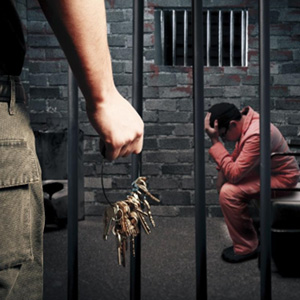The First 24 To 72 Hours
If you are arrested in Florida, you will go through a series of steps within the criminal justice system. While the specifics can vary, there are general points that allow for an overview of the typical progression through the legal process. Knowing this overview can help you remain at peace if navigating the aftermath of a criminal arrest in Florida.
In most cases, you’ll be taken directly to jail upon being arrested. However, in certain situations, especially DUI cases, you may stop at a police station or substation first, where a DUI investigation could occur. This can entail field sobriety exercises, breathalyzer tests, urine samples, or blood samples.
Afterward, you’ll usually find yourself in a booking center. This is where your mugshot is taken, your fingerprints are recorded, your personal belongings are logged, and you’re issued a property receipt. Following this, you’ll change into standard jail attire, often a jumpsuit. Typically, you’ll be held in a larger holding cell along with others until the processing is complete. During this time, various screenings, ranging from health and psychological assessments to criminal background checks may be used to help determine your housing within the jail.
Within a day, you will likely appear before a judge for an initial appearance. This stage is crucial as the judge assesses whether there’s probable cause for your arrest and determines the bond amount. Bail will be granted for most individuals, allowing you to secure your release while your case unfolds. However, certain circumstances, such as serious charges, people with a history of bond violations, or those with an extensive criminal history, could be held without bond, requiring legal action to secure a bond or a quick case resolution.
During the initial 24 to 72 hours, the police might attempt to reach out to you for an interview. It’s vital to refrain from engaging in conversations with them. Instead, your priority after securing your release through bond should be seeking legal counsel. Promptly consulting with an attorney is paramount when navigating the aftermath of a criminal arrest in Florida.
Understanding the process, especially during this critical window of time, and promptly seeking legal representation can significantly impact the outcome of your case. Legal assistance is paramount, providing you with an advocate who is dedicated to ensuring your rights are protected and giving you guidance as you navigate the complexities of the legal system.
Miranda Warning
The application of your “Miranda rights” hinges on two factors: custodial and interrogation. Understanding these terms and how they interact is crucial in comprehending when your rights come into play within the legal system.
Custodial pertains to being in custody, a situation that courts evaluate based on factual determinations. Simply put, when you are in custody, you are deprived of your freedom. It’s important to note that courts have established gradations of police-citizen interactions. A consensual encounter, where you voluntarily speak with the police, does not necessitate triggering your Miranda warning.
Courts often examine whether you were free to leave, or whether you were detained for a criminal investigation. If the police merely detained you roadside without placing you in handcuffs or restricting your movement, it’s typically not considered custodial. However, if physical restraint is employed, such as being handcuffed or confined within a police vehicle, it will likely be deemed custodial. The assessment hinges on how much freedom you’ve been deprived of during the encounter.
The second aspect, interrogation, involves officers asking you questions to which you respond. If an officer merely makes a comment, or the officer asks a simple question like if your handcuffs are too tight and you respond with an account of the crime, then courts will most likely find that you were not interrogated. Courts could view it as an unsolicited statement rather than an interrogation-induced response.
While the location plays a role, it’s not the sole factor determining custody. For instance, being at a police station doesn’t always mean you’re in custody, especially if you voluntarily come down to speak with the police. Conversely, even within your own home, if you’re physically restrained or prevented from leaving, you could be deemed in custody.
When and how Miranda rights apply involves carefully evaluating whether you are deprived of your freedom, i.e., custodial issues, and whether officers are actively soliciting responses through questions, i.e., interrogation. Recognizing the distinctions and nuances of these factors is key to understanding your rights before having to deal with the aftermath of a criminal arrest in Florida.
For more information on The Aftermath Of A Criminal Arrest In FL, an initial consultation is your next best step. Get the information and legal answers you are seeking by calling (407) 890-8472 today

